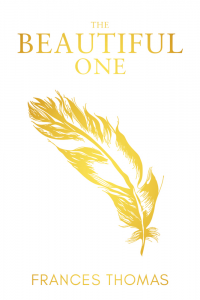Well, can they? The last two years have been quite horrible for the world, and yet poets continue to write poems. Is there any point to it? Is an Isis bomber going to take his finger off the detonation button because a line of Shakespeare comes into his mind? Is a gun-laden American fanatic going to turn his automatic weapon away from his fellow citizens because he remembers some Wordsworth? Auden wrote of a tyrant; he wrote poetry ‘that was easy to understand,’ and little children died in the streets when he got angry. I doubt that Donald Trump either writes, or reads poetry. Does it make any of us nicer?
Well, probably not. But perhaps that isn’t what poetry is about. Poets aren’t necessarily even very nice people. But yet we – those of us who aren’t Donald Trumps – do continue to read, and to love, poetry. You don’t need to share George Herbert’s beliefs to feel greatly comforted by his poem which begins ‘Love bade me welcome, but my soul drew back.’ Or to be uplifted by Wordsworth’s assertion that there is ‘a motion and a spirit that impels, all thinking things..’ when you’re looking out at a scene of stunning beauty. Or, remembering the sensations of your own pregnancy with Sylvia Plath’s beautiful poems on motherhood and babies; confounding the male critics who used to assert that these things weren’t suitable subjects for poetry. Every time I lose something, I think of Elizabeth Bishop’s stunning poem about loss, ‘One Art’.( Though this morning, I kicked something that went tinkling over the floor, and discovered that it was the earring that I thought I’d lost the other day. There has to be a poem about the joy of finding.) I don’t normally like those ‘inspirational’ poems that people are prone to post on social media, but Derek Mahon’s ‘Everything is going to be all right,’ and R.S.Thomas’s ‘The Bright Field’ can make me feel positive and optimistic, even on a bad day.
Yes, poems can be beautiful and enrich our own lives. But do they make any difference to the world? Looking at the favourite poems of those who are actually in charge of politics can be a bit depressing. Margaret Thatcher’s favourite poem was apparently ‘If’. (Though I also have a memory of her lovingly quoting Rolf Harris’s ‘Two Little Boys.) Gordon Brown likes ‘Invictus.’ Michael Foot was fond of Shelley’s ‘Mask of Anarchy’ – ‘ye are many, they are few.’ All rather predictable.
What of W.H. Auden’s stunning ‘September 1st 1939’ with its stunning ending ‘We must love one another or die.’ Yet it’s not to be found in his Collected Poems, because he felt that the ending didn’t work – we’ll die anyway even if we love one another. Yes, but I wish he’d left it there. Even if the Donald Trumps of this world wouldn’t read it, or understand it if they did.
So poetry probably doesn’t make much difference to the world. But it does colour the lives of those of us who read it, letting us share for a moment the insights and imaginations of those far more insightful and imaginative than us. ‘What oft was thought, but ne’er so well expressed.’
This, I suppose is the motivation behind two of my books, ‘A Bracelet of Bright Hair’ published in 2012, and its companion ‘Dancing in the Chequered Shade,’ published this year. Each is a journal of the events of my year, and how reading poetry has informed and enriched those events. But I describe my second volume ‘Dancing In The Chequered Shade as ‘poetry in a difficult year.’ No need to enumerate the events that made 2016 a difficult year, or those which are making 2017 just as nasty. For the first time in my life I find myself depressed and negative about the world I’m living in. Even our 1960s panic about the Bomb, or the unpleasantness of the Vietnam war didn’t make me feel quite as grey as the world does now- fanatical religions, insane gun attacks, unending wars spewing out unending streams of refugees. Reading poetry can seem like an indulgence, a fantasy, a turning away from reality.
But we go on reading it, and poets go on writing it. Can this be a bad thing? I just don’t know? Can poets make a difference? I find , as I grow older, there are more of these questions I just can’t answer. And maybe there isn’t an answer, maybe I shouldn’t try to find one. Maybe just posing the question, and stopping to think about it is enough.
(p.s. I just googled Donald Trump’s favourite poem; apparently it’s a song lyric called ‘The Snake’ about a kind woman who rescues a snake, only to be poisoned by it. The Trumpians to whom he read it out applauded loudly – and of course it’s a poem about not letting in nasty refugees. So that poem might have made a difference in a bad way)




